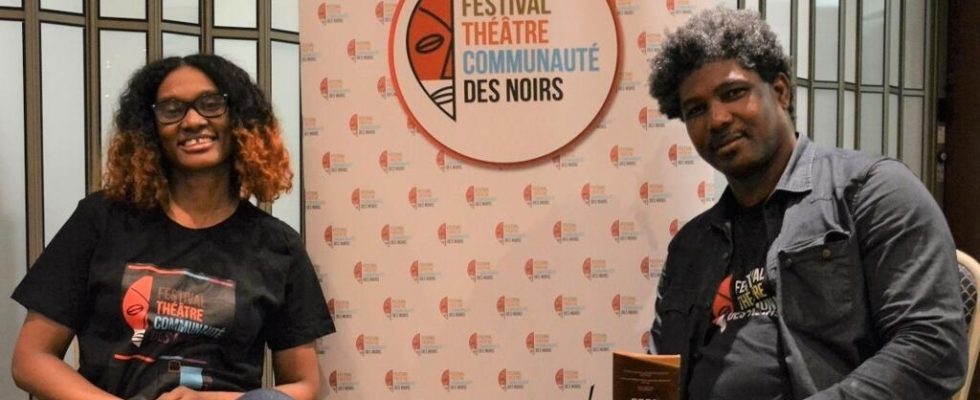Founded in Haiti in 1999 and extended to Montreal in 2012, the Compagnie de Théâtre Créole promotes an art that is not very open to minorities. Composed of Afrodescendants, the company promotes an international, intercultural and inclusive theatrical practice.
In the small room of a cultural center in Montreal, the one-hour monologue by Marielle Salmier, an actress of Guyanese origin, stops. A heavy silence takes place, which carries all the weight of the story, her story, which she has just retraced in the form of a diary haunted by violence and rare moments of happiness. Quickly, Ricky Tribord, the director and the actress launch an exchange with the public.
About thirty spectators, of very varied ages and origins, came to attend the first play of this fifth edition of the Black Community Theater Festival, organized by the Creole Theater Company. During the debate, a woman of European origin finds herself in Marielle’s testimony of gender-based violence. A man of Haitian descent compares his place as a black woman in the French suburbs to that of Haitian women in the slums of his native island. A middle-aged lady thanks the actress for her strength and the power of her testimony.
Promoting black theater
To make known other realities, that of minorities, to allow everyone to go on stage, this was the primary objective of the Compagnie Théâtre Créole when it was created by Ralph Civil in Haiti in 1999. We promote a theater carried by Afro-descendant artists who do not really have access to promotion on TV, on the big stages : for them, it’s blocked everywhere sighs Ralph Civil.
For this, the Creole Theater Company multiplies the initiatives. The institution organizes numerous free theater performances in the most underprivileged neighborhoods of Montreal, and their activity culminates in the Black Community Theater Festival, also called Fethécomnoirs. Nerlande Gaetan, the coordinator, specifies : “ In addition to the plays, we organize in Montreal the day “Absolutely Women”, where black female artists come to perform. For the past year, the festival has also taken place internationally with Regards Ailleurs. This year we performed plays in Haiti, next year it will be in Guadeloupe “.
To be eligible for selection, a part does not need to meet many conditions. “ We don’t limit ourselves to themes or languages. The only condition is that there was at some point in the artistic production process an Afro-descendant person, whether it be the director, the writer or the actor. says Ralph. More broadly, the company encourages pieces based on the inclusion of minorities excluded because of their gender, sex or skin color.
Giving back to communities
Prolific, the troupe organizes the Creole Theater Festival in the fall, as part of the World Day of Creole Languages and Cultures. With nearly 300 000 Canadians from the Creole community, many of whom live in Montreal, the pool of potential spectators is immense. “ We appreciate the idea of collaborating with all the Creole communities, but it’s more complicated when it’s in the theater, because it’s not very recognized as an art in the communities, unlike music for example. “, regrets Nerlande. Indeed, the rooms are far from full. For Ralph Civil, the main obstacle is to fight against the elitist perception of the theater : “ Here, the community is no longer used to going to the theater since people who look like them are not on stage. We want to desacralize art and culture, especially for low-income communities. »
The company hopes to have a lasting influence on the place of blacks in theatre. For the first time, it is organizing a symposium on the subject, which will bring together players in the sector. Nerlande nevertheless has some regrets : “ It is difficult to find researchers, in sociology or whatever, who have studied the phenomenon in theater specifically, which is to say the importance of discussing it around a table “. The objective of the discussions will be to write specifications, an overview of the situation, with recommendations, so that black people have the opportunity to turn to theatre.
Ralph, on the other hand, discovered theater at school, in Haiti, thanks to “ Madame Benedictine » – he never forgot his name. The Théâtre Créole company therefore regularly invites artists to collaborate with students in Montreal, hoping to give birth to vocations. But the troupe wants to go further : last year, she gave herself five years to set up a theater school for Afro-descendants.
